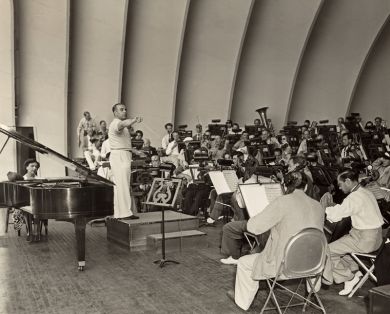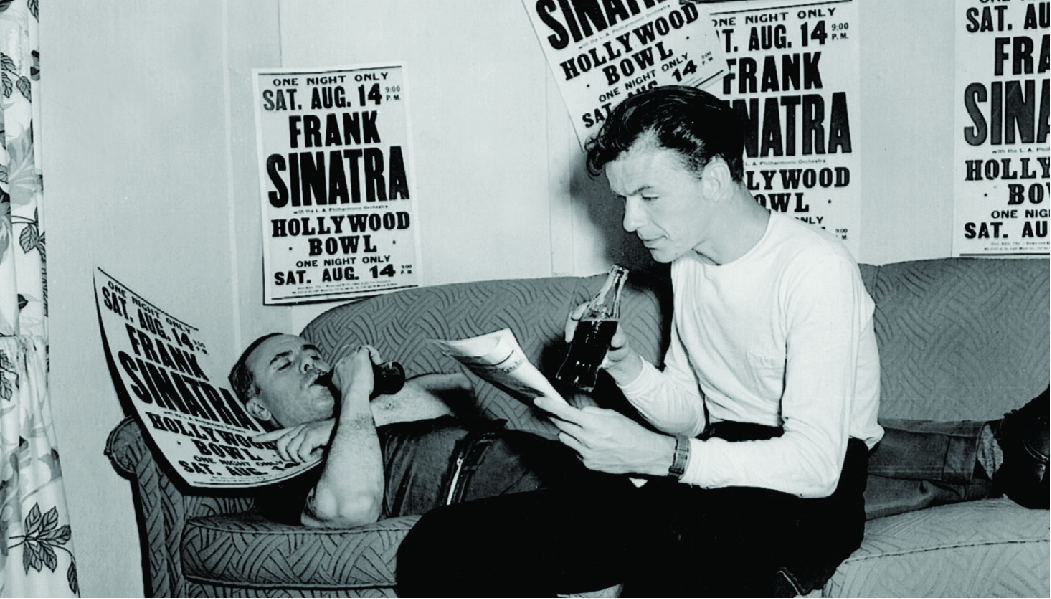José Iturbi Biography
Born: November 28, 1895 (Valencia, Spain)
Died: June 28, 1980 (Beverly Hills, California, USA)
José Iturbi was recognized as the world’s greatest classical pianist during the 1930’s – 1970’s. José Iturbi was the world’s most popular classical musician from the 1930’s until his death.
Iturbi’s talent was recognized at an early age. He started piano lessons at age 3, and graduated with first prize honors from the Valencia Music Conservatory at 14 years old. Iturbi received a scholarship to study at the Paris Music Conservatory where he spent his days as a serious student and his nights playing in a Paris café in return for one meal a day, a space to sleep in the café store room after hours, and a few francs. Iturbi always tried to find ways to make ends meet. No matter how difficult times were, Iturbi was determined to remain in the greatest cultural center of Europe – Paris.
In 1913, Iturbi graduated from the Paris Music Conservatory with the first of all first prize honors. He then held the chair of Professor of Piano Virtuosity at the Geneva Conservatory of Music in Switzerland (a post once held by Franz Liszt) for six years until his concert engagements became too numerous to permit his required teaching schedule.
Throughout his long career, José Iturbi concertized to adoring fans and sold-out audiences in every corner of the world. It was commonplace at Iturbi’s concerts for the overflow audience to be seated on stage. This remained his standard from the 1920’s and for the next five decades through the 1970’s! Excitement always accompanied Iturbi on his concert tours!

Hollywood Bowl Rehearsal: José Iturbi conducting the Hollywood Bowl Orchestra with his sister Amparo at the piano performing Rachmaninoff’s Piano Concert No. 2, summer 1948. The combination of José, Amparo and Rachmaninoff created an instantly sold out performance complete with a traffi c jam on the streets of Hollywood leading to the Hollywood Bowl. The Hollywood Bowl has traditionally started all performances no more than fi ve to ten minutes late due to traffi c delays;José and Amparo Iturbi’s performance started thirty minutes late!
HOLLYWOOD AND "THE MOVIES"
Iturbi said his first interest in motion pictures came when he was just a small boy of seven years old. To help make ends meet for his family, Iturbi played piano accompaniment to silent films at the neighborhood theatre in his hometown of Valencia, Spain. He began work everyday at 2 pm and played straight through a twelve hour shift until 2 am. This was a rigorous schedule for anyone let alone a seven year old boy.
Young Iturbi enjoyed making his music fit the different moods portrayed by the actors up on the screen, and he even changed his background music every performance to give it variety!
Everyday, Iturbi used to wonder about those actors each time he looked up at the screen and think of what fun they must have had filming these “flickers”.
“I entered pictures because, first of all, I thought I’d enjoy it – which I did! And, second, I felt that classical music should be a more recognizable part of everyman’s entertainment, and it has been my great hope that through motion pictures a larger group of people would learn to like classical music and attend live concert performances”, José Iturbi, 1945!
José Iturbi enjoyed making seven movies at Metro-Goldwyn-Mayer. In each of these films, Iturbi always played himself. He was known as José Iturbi, Maestro Iturbi, and sometimes, José. His most popular films include:
That Midnight Kiss (1949)
Three Daring Daughters (1948)
Holiday in Mexico (1946)
Anchors Aweigh (1945)
Music for Millions (1944)
Two Girls and a Sailor (1944)
Thousands Cheer (1943)In 1945, José Iturbi agreed to provide the riveting piano score to Frederic Chopin’s highly romanticized life in Columbia Pictures’, “A Song to Remember”, starring Paul Muni, Merle Oberon and Cornel Wilde. The public never saw Iturbi on film but they went wild for his rendition of Chopin’s greatest known piano repertoire. Iturbi’s legions of fans helped propel the movie’s popularity and sold more than one million copies.

José Iturbi and Frank Sinatra relaxing in a private moment before the evening’s performance at the Hollywood Bowl (August 14, 1946). They began their lifelong friendship on the set of MGM’s, Anchors Aweigh (1945). Both famous artists, Iturbi and Sinatra, enjoyed playing practical jokes. They shared a great friendship and camaraderie for more than thirty years, until Iturbi’s death in 1980.
